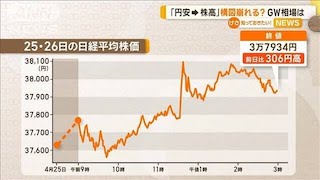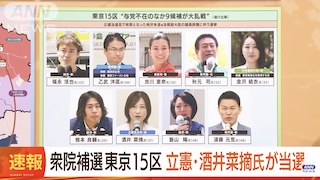TOKYO, Mar 25 (News On Japan) - The Bank of Japan has concluded its decade-long "unprecedented monetary easing" policy, a cornerstone of Abenomics. But what has this "unprecedented easing" brought about, and what are the long-term side effects? What happens to the vast amounts of government bonds and ETFs the Bank of Japan has accumulated?

Bold Monetary Easing Explained...
Viewed from above, the Bank of Japan's headquarters resembles a "circle," symbolizing its role in protecting the value of the yen, thus earning it the moniker "guardian of the currency." This time, it has decisively shifted away from the "unprecedented monetary easing policy" that supported Abenomics.
Launched with a declaration by former Governor Kuroda to "double the amount of money flowing into the market," the "unprecedented easing policy," also dubbed the "Kuroda Bazooka," involved negative interest rates and the purchase of massive amounts of government bonds, as well as aggressive buying of "ETFs=Exchange-Traded Funds."
The Effects?
This extreme and unusual policy aimed to stimulate consumption by increasing the money supply, thereby boosting inflation, corporate profits, and eventually leading to wage increases for workers. However, the actual effects have been mixed. In 2023, Prime Minister Kishida stated, "The expected trickle-down effect did not occur over 30 years."
While the policy led to wealth increases for the affluent and improved corporate performance for large companies, it did not translate into a broadly felt economic benefit.
Future Challenges...
Meanwhile, the side effects of the "unprecedented easing policy" have become increasingly apparent.
Economic commentator Keiichi Kataya points out "uncontrollable inflation and excessive yen depreciation" as major concerns. He notes that the policy shift comes at a critical juncture to avoid "uncontrollable inflation."
With ongoing worries about persistent high prices without matching wage increases, the concern remains substantial.
Furthermore, the yen continued to weaken even after the Bank of Japan's policy shift, at one point reaching 151 yen to the dollar. Behind this is the Bank of Japan's "negative legacy" from its easing policy: a massive holding of government bonds totaling 581 trillion yen as of December 2023.
Kataya suggests that the Bank of Japan must continue purchasing bonds to prevent government interest payments from ballooning and that this anticipation is driving ongoing yen depreciation.
Similarly, handling the 71 trillion yen worth of ETFs requires careful action. It's estimated that selling them without affecting stock prices could take nearly 230 years, indicating a long and challenging journey back to financial normality.
Source: TBS










